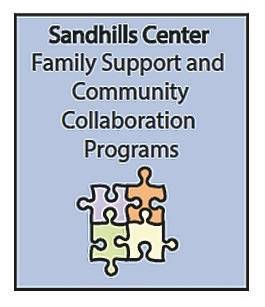ANSON COUNTY — Maintaining one’s own mental and physical health during the lock down without access to gyms and in-person therapy can be trying for anyone. Suzanne Maness, Family Advocate with Sandhills Center and NC Families United, has some tips on how to manage stress and mental health, particularly for individuals and families in isolation or quarantine.
Stress and anxiety may manifest in a number of ways. “Those in isolation may experience fear and worry about their health as well as the health of their loved ones,” said Maness. “They may also see changes in sleep or eating patterns, have difficulty concentrating, worsening of mental and physical health problems and conditions, and increased consumption of drugs and alcohol.”
For children, signs of stress may show up as physical, emotional, or behavioral changes depending on their age, personality, and coping skills.
These behavioral and emotional changes could include excessive worry or sadness, aggression, fears of the dark, displaying nervous habits like nail-biting, withdrawal from family and friends, hoarding of objects, and refusal to go to school.
“Physical changes for children may involve difficulty sleeping, changes in appetite, head and stomach aches, and bed-wetting,” said Maness
For adults, Maness suggests the “5 A’s” in order to deal with stress and anxiety. The A’s stand for Avoid, Alter, Accept, Adapt, and Assert. “Avoid alcohol and drugs,” suggests Maness, “Alter your schedule so you have time to eat healthy, exercise, relax and sleep. Accept family and social support and medical treatment if needed. Adapt to events or situations that you have no control over. Assert your feelings instead of becoming aggressive and learn to say no.”
Parents can help their children deal with their feelings by making their home a calm, safe and secure place with a relaxed atmosphere with a stable routine. “Having structure and a schedule is very important for children. Adopt healthy habits like exercise, self-care, eating, and sleeping at certain times,” said Maness.
Other ways parents can help their children during stressful times can include listening to their child’s needs and concerns and offering comfort. It’s also important to talk with your children about what’s going on and to limit their exposure to upsetting news and media.
It’s important for parents to allow their children to be creative and independent so they feel they have some control over their environment. Parents should also provide affection and encouragement and to use positive reinforcement and discipline that promotes healthy self-esteem.
“In other times of uncertainty, our children will be able to recall how they pulled together with their family and made the best of things,” said Maness. “Children are more resilient than we think.”
Communication is the cornerstone that holds a family together. Families can bond and communicate during the lockdown by having family dinners, playing games, cleaning and fixing things, and through arts and crafts.
Some people may find themselves in isolation with an abusive partner. “First, they need to know they are not alone,” said Maness. Her advice for people in this situation is to”create a detailed safety plan in case they have to leave or escape. Know a trusting adult they can call or stay with. Compile names, addresses, and phone numbers of people they can call or maybe stay with.”
Maness also suggests that they always have some cash on-hand in case they have to leave or escape. It’s also important for these individuals to pack a change of clothes, toothbrush, and a list of names and phone numbers of people they can call or stay with in a plastic grocery bag and put the bag somewhere the abuser will not find it.
The National Domestic Violence Hotline is the best resource for people in this situation. They are available 24/7 online to chat at thehotline.org or by phone at 800-799-7233 (SAFE). In Anson County, people can call the 24 hr. Crisis line for Anson County Domestic Violence Coalition at 704-690-0362.
A brain is like a muscle, it needs to be exercised in order to remain at peak performance. Maness suggests that people stay physically active while in lockdown because “it helps our memory, improves mood and sleep, and reduces stress and anxiety. By doing 30 minutes of aerobic exercise, one pumps more blood to the brain.”
Other ways to stay active and improve cognitive functions are to meditate, cook, dance, sing, listen or play music, cards, puzzles, and board games, or to try and learn a new language.
“Remember there are ways of making the best out of any situation,” said Maness. “COVID-19 has given us an opportunity to experience many new things.”

